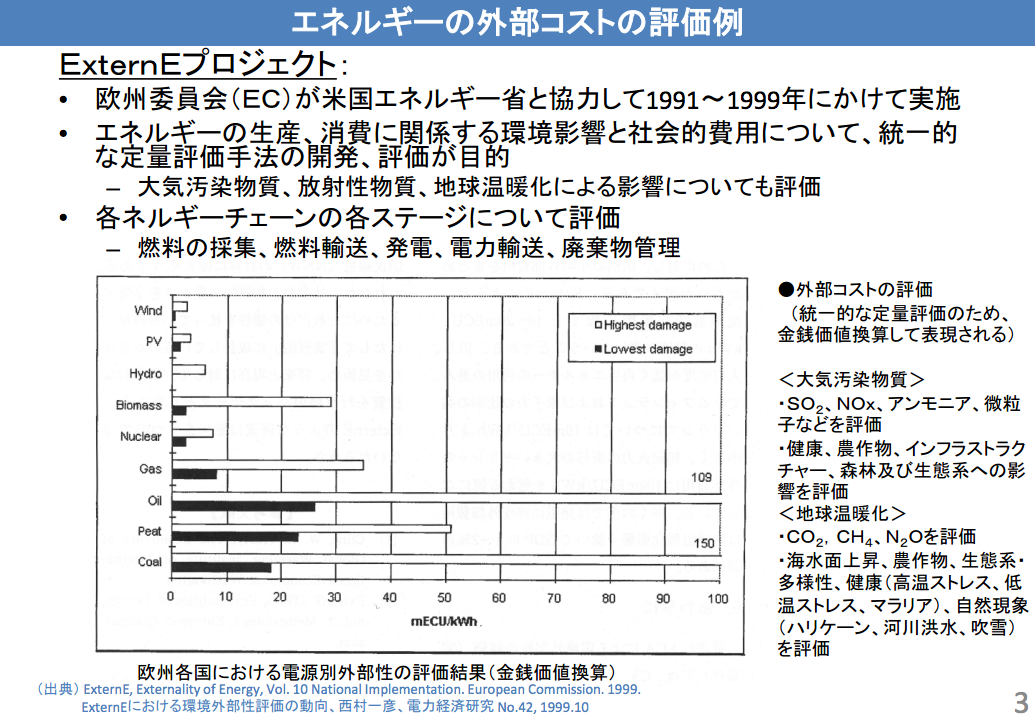世界保健機関(WHO)が大気汚染に関する新しい推計を発表し、2012年に約700万人(全死亡者数の1/8)が大気汚染によるものだとしている。下記のように、大気汚染の原因として「運輸、エネルギー、廃棄物管理、産業など」を挙げている。
25 MARCH 2014 | GENEVA - In new estimates released today, WHO reports that in 2012 around 7 million people died - one in eight of total global deaths – as a result of air pollution exposure. This finding more than doubles previous estimates and confirms that air pollution is now the world’s largest single environmental health risk. Reducing air pollution could save millions of lives. ・・・・・
“Excessive air pollution is often a by-product of unsustainable policies in sectors such as transport, energy, waste management and industry. In most cases, healthier strategies will also be more economical in the long term due to health-care cost savings as well as climate gains,” says Dr Carlos Dora, WHO Coordinator for Public Health, Environmental and Social Determinants of Health.
これに関連することとして、エネルギー分野における外部コスト比較や過酷事故事例について、経済産業省が公表している5枚の資料を抜粋掲載しておく。使用するエネルギー源としてどれが最も比較優位なのかについては、各国それぞれの事情で選択されるべきだ。
※画像をクリックして拡大
総じて原子力の被害者数が少ないが、これを意外に思う人は多いかもしれない。しかし、原子力リスクについては、事故が起きた時の社会的影響が大きい、社会における受容性が低いといった特殊性がある。
世界的なエネルギー開発動向を見ると、原子力発電も含めて、各国の事情と費用対効果が天秤にかけられている結果なのであろう。それは即ち、政治判断そのものである。
(NPO法人社会保障経済研究所代表 石川 和男 Twitter@kazuo_ishikawa)
※筆者は「Gadgetwear」のコラムニストです。 本稿は筆者の個人的な見解です。




